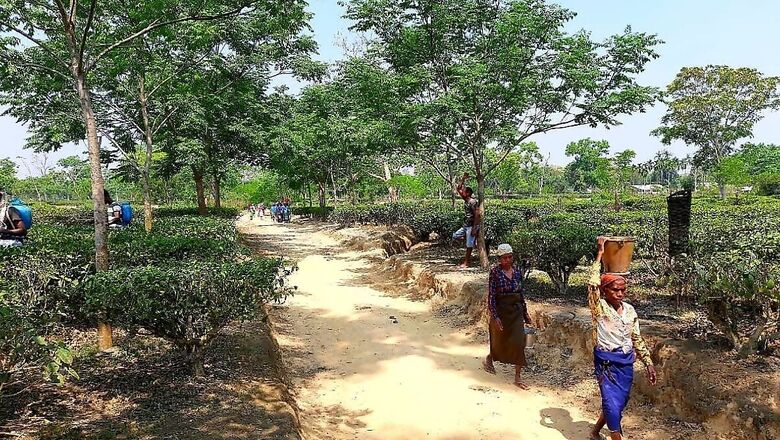
views
With the government and experts, both sounding alarm bells over the Covid-19 surge in the northeastern states, especially in Assam, faster than anywhere else in the country, the focus is now on mitigating the effects of the second wave of the virus while increasing both understanding and awareness among citizens.
On Tuesday, eight states report a rise in cases of these six are in the northeast.
Cases in Assam started ticking upward last month and 6,221 fresh cases of infections pushed the tally to 3,75,404 yesterday. And experts predict that the current spread of cases before they are actually detected says infections in Assam are likely occurring as fast as any other place in the country.
Add to that the recent elections in the state and the massive political rallies that accompanied them and experts fear an uncontrolled surge is on the horizon.
Remote areas, inadequate infrastructure
Worryingly, along with cities in India’s northeastern frontier which is closer to Myanmar, Bangladesh and Bhutan than it is to New Delhi, cases have also started to spike in some remote Himalayan villages in the region.
India on Tuesday posted 196,427 new coronavirus cases over the last 24 hours, its lowest daily rise in infections since April 14, while deaths from Covid-19 rose by 3,511.
The country’s overall caseload now stands at 26.95 million, while total fatalities are at 307,231, according to health ministry data.
Officials in Assam are racing to prepare for a virus surge because similar onslaughts in infections have overwhelmed hospitals in much richer Indian states.
We are adding 1,000 beds a week to prepare ourselves in the event of cases spiralling, said Dr Lakshmanan S, the director of the National Health Mission in Assam.
A total of 200 ICU beds will also be added in Gauhati Medical College and Hospital by June 15 to increase the treatment facilities for Covid-19 critical patients, Assam Chief Minister Himanta Biswa Sarma had said on Monday.
The state’s largest government-run hospital, the Guwahati Medical College Hospital has more than doubled its number of intensive care beds to 220 and health officials are building another 200 in the hospitals parking lot.
A football and cricket stadium is being converted into a hospital for COVID-19 patients with 430 beds. The private Royal Global University in the state capital, Gauhati, has been converted into a hospital with 1,000 beds.
The state is sending doctors, paramedics and medicine to these facilities and the university said it would provide books and newspapers for patients to read.
This is the least we thought we could do in this time of huge crisis for our country, said Dr AK Pansari, the university chairman.
Cases up, vaccines down
Even as infections have increased, the rates of vaccination have fallen in Assam and the other states in the region since India expanded its coverage to include all adults on May 1.
Adding to concerns is confirmation the virus has started spreading into more remote Himalayan villages with poor health infrastructure. These areas are home to indigenous tribes, whose are already face some of the lowest access to health care in the nation.
The region had largely been untouched by the virus earlier and many people behaved like Covid-19 didn’t exist. But it now appears the virus was spreading in even remote villages without people knowing until it was too late.
The lack of awareness about the virus, lack of resources and the remoteness is complicating contact tracing in such areas, said Dr Mite Linggi, the medical superintendent at the district hospital at Roing in Arunachal Pradesh state.
Despite the limited medical infrastructure and even more limited medical supplies, Linggi said what they really feared were power cuts.
Power is crucial for running the oxygen supply. We have patients gasping for air when the power comes and goes out, he said.
Read all the Latest News, Breaking News and Coronavirus News here. Follow us on Facebook, Twitter and Telegram.



















Comments
0 comment